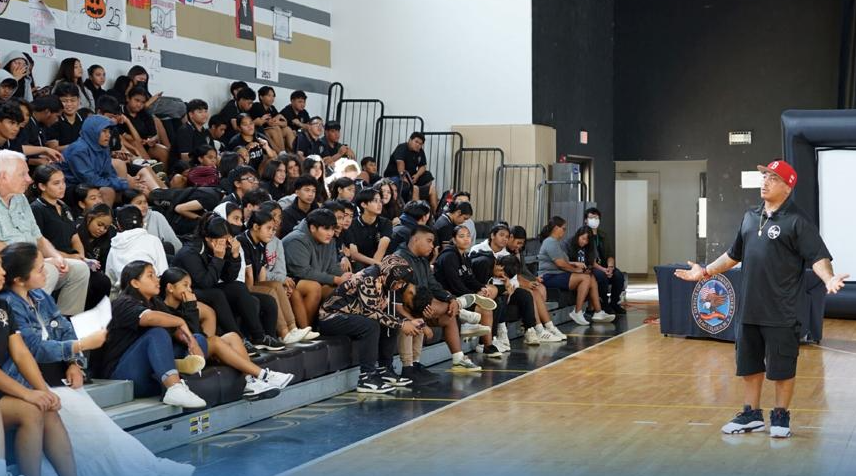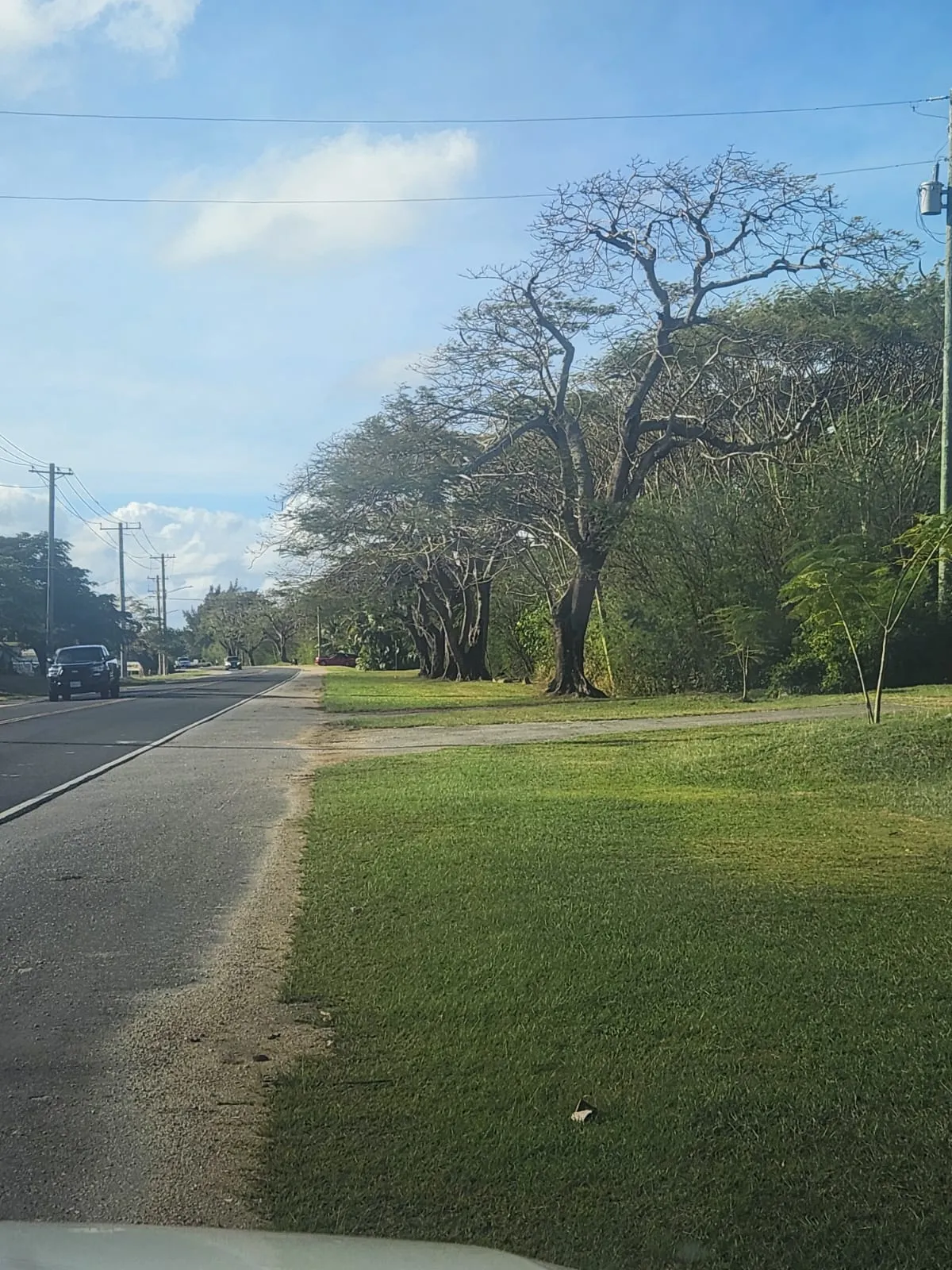
Featured speaker Michael Salas, right, talks to students at Tiyan High School about methamphetamine addiction as part of the Office of the Attorney General’s Changing the DNA outreach event on Dec. 3, 2024.
Photo courtesy of the Guam AG’s Office/The Guam Daily Post
HAGÅTÑA (The Guam Daily Post) — For decades, authorities have been battling the war on drugs, but the methamphetamine epidemic persists, with meth dealers targeting children as new customers. Because of this, Attorney General Douglas Moylan has taken the battle to schools, where he hopes education will keep kids off meth.
The AG’s team, accompanied by featured speaker Michael Salas, who is recovering from methamphetamine addiction, did their best to deter students at Tiyan High School from using methamphetamine through the Changing the DNA school outreach event on Dec. 3.
“I’m here to save you guys,” Salas said as he shared his experience with meth addiction and the impact it had on his life.
“My house got raided,” he said, noting that he went to jail because of his drug involvement.
Salas, who now works with Tohge Guam, a recovery community organization, told the students, “Meth is a very powerful drug.”
“This guy has been through hell and back. One of the few that had been able to pull himself out and try to pick up the damage that he did to him (and) his family because of the love of his son and his wife,” Moylan said.
Moylan, ahead of Salas’ remarks, stressed to students that his office is targeting meth dealers and people who use drugs.
“What’s happening is we are understanding the problem that Guam is experiencing right now.… We got too many people taking a substance that is too deep on Guam and will have a very high risk of never letting you go, and it’s called methamphetamine,” Moylan said.
The AG showed students photographs depicting what meth looks like in crystallized and powdered form as he told the students that “so many people” are in jail on drug-related offenses, which has caused dealers on the streets to look for “new customers.”
“Because their customers are dying and they’re being locked up in prison, they’re looking for you guys,” Moylan said. “They’re giving you guys free samples of that drug.”
He said the intent of meth dealers is to hook the child.
“What is the intent of the meth dealer giving you that drug, is it gets you addicted. They’ll give you free samples, and it’s so powerful. The German Nazi government created it so that it could make people a superman and causing people to be addicted to it. It changes your brain,” Moylan said.
Post files show that the 2021 updated Guam State Epidemiological Profile details usage among high schoolers.
“Meth use among high schoolers has been steady in recent years, after falling off between 1999 and 2011, the report shows. In 1999, nearly 13% of all high schoolers reported trying meth at least once — and nearly one in five CHamoru students had tried the drug. While in 2019, the number decreased to about 5.6% of all high schoolers surveyed,” Post files state.
That’s more than twice the national rate reported by the U.S. Centers for Disease Control and Prevention in 2019, which was 2.1% of high schoolers.
Post files also state that in February 2021, the Department of Youth Affairs reported admitting six repeat offenders and two new offenders who disclosed meth use in 2019. The following year, four repeat offenders admitted to the use of meth before reentering DYA.
In 2020, Guam Behavioral Health and Wellness Center reported two minors under the drug abuse treatment program.
But these instances only reflect known cases and do not account for meth use unreported among teens.
At the time, officials pointed toward exposure within the family, curiosity, accessibility and peer pressure as contributing factors.
The outreach event held at Tiyan High marks the Office of the AG’s third school visit targeting high school and junior high school students.
“We are trying to change the DNA of our kids to identify, understand and to fight back against illegal activity,” a press release from the OAG said.











